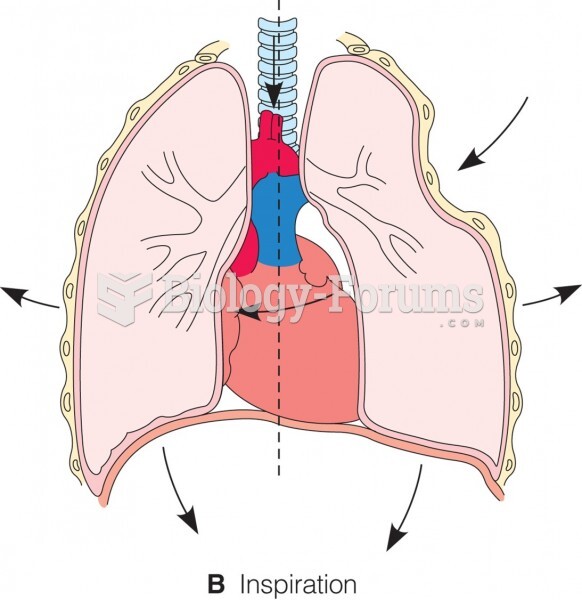|
|
|
Nearly 31 million adults in America have a total cholesterol level that is more than 240 mg per dL.
The first oral chemotherapy drug for colon cancer was approved by FDA in 2001.
Astigmatism is the most common vision problem. It may accompany nearsightedness or farsightedness. It is usually caused by an irregularly shaped cornea, but sometimes it is the result of an irregularly shaped lens. Either type can be corrected by eyeglasses, contact lenses, or refractive surgery.
The term bacteria was devised in the 19th century by German biologist Ferdinand Cohn. He based it on the Greek word "bakterion" meaning a small rod or staff. Cohn is considered to be the father of modern bacteriology.
There are more nerve cells in one human brain than there are stars in the Milky Way.







